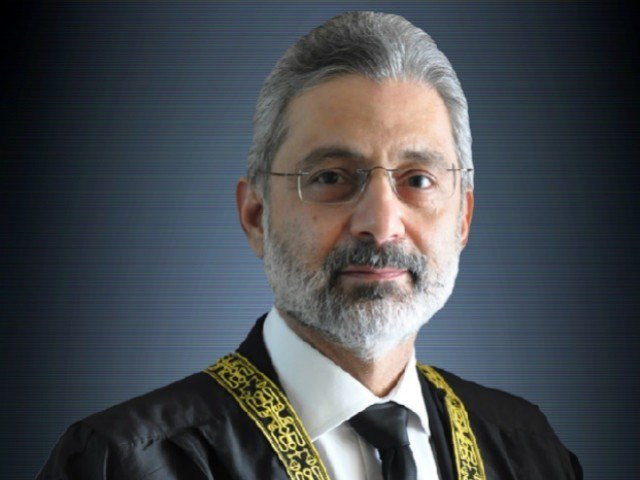Judges oppose Justice Isa’s views on reaching compromise in criminal cases
Justice Isa is of the view that reaching a compromise does not set aside the conviction of a criminal

Justice Qazi Faez Isa. PHOTO: FILE
In an earlier judgement in 2017, Justice Isa had ruled that when a compromise is accepted, it brings an end to the punishment of the offence, but it does not simultaneously result in setting aside of the conviction and acquittal of the convict.
However, majority judges in four different benches opposed Justice Isa's view. They instead supported Chief Justice of Pakistan Asif Saeed Khosa’s view who said that a convict will get all the benefits and fruits of a lawful acquittal on the basis of a compromise with legal heirs of a victim in criminal matters.
Justice Qazi Faez Isa had differed on this point and said a compromise with the heirs in criminal matters ‘cannot affect the conviction’.
The chief justice later referred the matter to a three-judge bench for a final opinion.
SJC issues show-cause to Justice Isa for writing letters to Alvi
Justice Khosa, heading the three judge bench, on June 30, 2018 declared that the court appreciates the intensity and sincerity of the sentiment expressed by Justice Isa but could not agree with “his lordship so as to interpret the existing law in the light of some hypothetical possibilities in this world and retribution or redemption in the hereafter”.
Later, in October last year, Justice Qazi Faez Isa and Justice Yahya Afridi raising objections said that a number of provisions were not considered by the bench led by Justice Khosa in the judgment, and most probably because the requisite assistance was not provided by law officers.
The matter was again referred to the then Chief Justice Mian Saqib Nisar for the constitution of a larger bench to adjudicate the matter. However, Justice Gulzar Ahmad, who was heading the bench had opposed Justice Isa and Justice Afridi’s view and endorsed the opinion of the three judges led by Justice Khosa.
Likewise, in October 2018, former CJP Mian Saqib Nisar had also declined Justice Isa’s proposal to constitute a larger bench to decide the same matter.
Justice Isa then raised objection over the rejection of his proposal regarding formation of a larger bench saying that two judges had passed judicial order and the CJP did not have discretion not to form a larger bench. He reiterated that the issue was very significant and underscored that the question of law needs to be enunciated in terms of Article 189 of Constitution.
However, two other members of the previous bench— Justice Umar Ata Bandial and Justice Muneeb Akhtar— did not agree with him.
Justice Akhtar, while differing with Justice Isa, said that the CJP is not bound to form a larger bench on the proposal of minority judges’ view. The judge also said that the matter has already been settled by majority judges.


















COMMENTS
Comments are moderated and generally will be posted if they are on-topic and not abusive.
For more information, please see our Comments FAQ